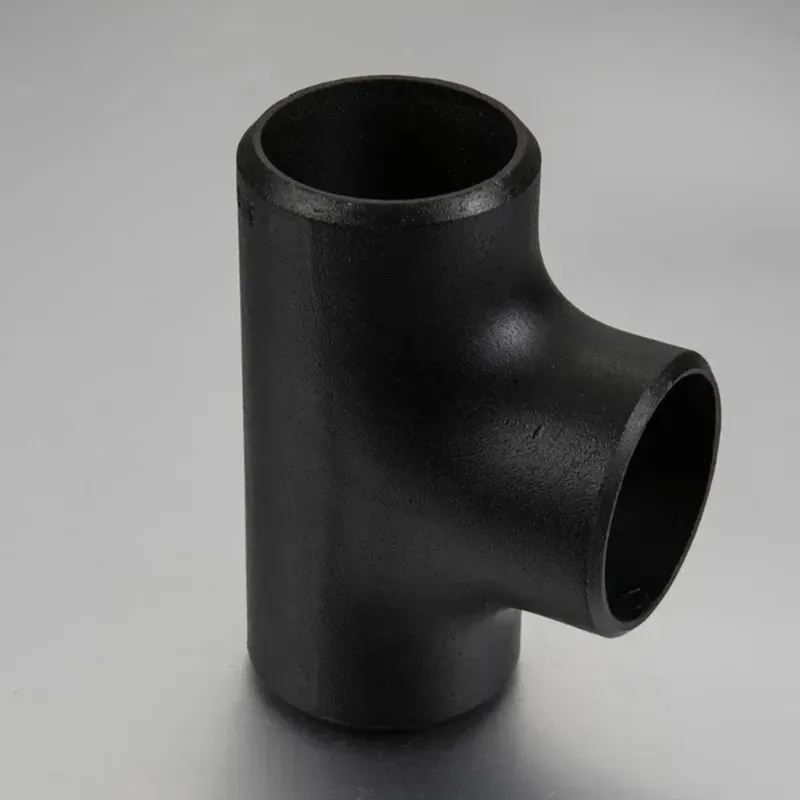-
Cangzhou Yulong Steel Co., Ltd.
-
Phone:
+86 13303177267 -
Email:
admin@ylsteelfittings.com
- English
- Arabic
- Italian
- Spanish
- Portuguese
- German
- kazakh
- Persian
- Greek
- French
- Russian
- Polish
- Thai
- Indonesian
- Vietnamese
- Zulu
- Korean
- Uzbek
- Hindi
- Serbian
- Malay
- Ukrainian
- Gujarati
- Haitian Creole
- hausa
- hawaiian
- Hebrew
- Miao
- Hungarian
- Icelandic
- igbo
- irish
- Japanese
- Javanese
- Kannada
- Khmer
- Rwandese
- Afrikaans
- Albanian
- Amharic
- Armenian
- Azerbaijani
- Basque
- Belarusian
- Bengali
- Bosnian
- Bulgarian
- Catalan
- Cebuano
- China
- China (Taiwan)
- Corsican
- Croatian
- Czech
- Danish
- Esperanto
- Estonian
- Finnish
- Frisian
- Galician
- Georgian
- Kurdish
- Kyrgyz
- Lao
- Latin
- Latvian
- Lithuanian
- Luxembourgish
- Macedonian
- Malgashi
- Malayalam
- Maltese
- Maori
- Marathi
- Mongolian
- Myanmar
- Nepali
- Norwegian
- Norwegian
- Occitan
- Pashto
- Dutch
- Punjabi
- Romanian
- Samoan
- Scottish Gaelic
- Sesotho
- Shona
- Sindhi
- Sinhala
- Slovak
- Slovenian
- Somali
- Sundanese
- Swahili
- Swedish
- Tagalog
- Tajik
- Tamil
- Tatar
- Telugu
- Turkish
- Turkmen
- Urdu
- Uighur
- Welsh
- Bantu
- Yiddish
- Yoruba

aŭg . 06, 2024 00:05 Back to list
Exploring the Applications and Benefits of 16-Inch 90 Degree Elbow Fittings in Plumbing Systems
Understanding the 16-Inch 90-Degree Elbow A Crucial Component in Fluid Dynamics
In the realm of industrial piping systems, the 16-inch 90-degree elbow plays a pivotal role in ensuring the effective and efficient transport of fluids. This component, characterized by its bent design, allows for a change in direction while minimizing flow resistance. Whether in water supply systems, chemical processing facilities, or HVAC systems, the significance of a 90-degree elbow cannot be overstated.
Design and Functionality
The 16-inch specification refers to the diameter of the elbow, indicating that it is designed to fit pipes that have a diameter of 16 inches. These elbows are typically made from various materials, including stainless steel, carbon steel, PVC, and other alloys, depending on the requirements of the application, such as pressure, temperature, and fluid type.
The primary function of a 90-degree elbow is to change the direction of fluid flow. In many piping layouts, direct linear runs are impractical due to space constraints or the layout of the facility. By integrating a 90-degree elbow, engineers can reroute the flow efficiently without causing significant turbulence or pressure loss. This design is particularly beneficial in maintaining the integrity of the flow, which is critical in applications where pressure levels must be controlled consistently.
Benefits of Using 16-Inch 90-Degree Elbows
One of the standout advantages of using a 16-inch 90-degree elbow is the minimization of flow disruption. Compared to other options like valves or reducers, elbows provide a smoother transition. The gradual curvature of the elbow reduces the risk of cavitation—an issue where vapor bubbles form and collapse, potentially damaging the piping system and reducing efficiency.
Additionally, these elbows are designed to accommodate various flow rates. Their size allows them to handle significant volumes of fluid, making them suitable for large-scale industrial applications. For instance, in a chemical plant where large quantities of reactants need to be transported swiftly, a 16-inch elbow will enable efficient movement without bottlenecks, thereby enhancing productivity.
16 inch 90 degree elbow

Installation and Maintenance Considerations
When installing a 16-inch 90-degree elbow, it is essential to ensure proper alignment with the connecting pipes. Misalignment can lead to stress on the elbow, which may ultimately result in premature wear or failure. Furthermore, the installation process often involves welding or threaded connections, which should be executed by skilled professionals to guarantee system integrity.
Maintenance of these elbows is generally straightforward. Regular inspections can help detect any signs of wear, corrosion, or accumulation of debris that could obstruct flow. Given their robust design, 16-inch elbows can last for many years without significant issues, reducing the overall maintenance burden on the facility.
Applications Across Industries
The versatility of the 16-inch 90-degree elbow makes it useful across various sectors. In water treatment plants, these elbows facilitate the transport of treated water while minimizing energy loss. In oil and gas industries, they are crucial for routing pipelines through complex landscapes. HVAC systems also benefit from these elbows as they help manage airflow efficiently, ensuring optimal performance of heating and cooling systems.
Conclusion
In conclusion, the 16-inch 90-degree elbow represents a critical element in the design of efficient piping systems. Its ability to change fluid direction without compromising flow quality positions it as an indispensable tool across numerous industries. Proper selection, installation, and maintenance of these elbows will not only enhance operational efficiency but also extend the lifespan of the piping systems they serve. As industries evolve and demand for effective fluid management increases, the role of quality components like the 16-inch 90-degree elbow is bound to grow in importance.
Latest news
-
ANSI 150P SS304 SO FLANGE
NewsFeb.14,2025
-
ASTM A333GR6 STEEL PIPE
NewsJan.20,2025
-
ANSI B16.5 WELDING NECK FLANGE
NewsJan.15,2026
-
ANSI B16.5 SLIP-ON FLANGE
NewsApr.19,2024
-
SABS 1123 FLANGE
NewsJan.15,2025
-
DIN86044 PLATE FLANGE
NewsApr.19,2024
-
DIN2527 BLIND FLANGE
NewsApr.12,2024
-
JIS B2311 Butt-Welding Fittings LR/SR 45°/90° /180°Seamless/Weld
NewsApr.23,2024











